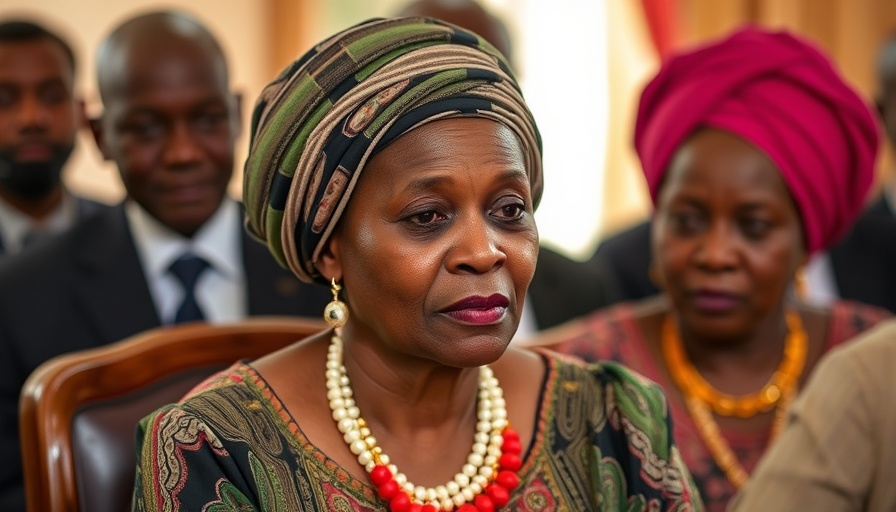
Political Dynasties: The Role of Familial Connections in Governance
South Sudan's President Salva Kiir has made headlines once again, this time for appointing his daughter, Senator Adut Kiir, as the head of the South Sudan School of Peace and Conflict Resolution. The decision, viewed critically by many observers, raises questions about the implications of political dynasties in governance. Dynastic politics is not unique to South Sudan; it is visible across Africa, often blurring the lines between family loyalty and national interest. Such appointments can lead to perceptions of nepotism, ultimately undermining institutional integrity and public trust.
Concerns for Governance and Democratic Institutions
Analysts argue that Adut's appointment, following a rich history of nepotism in South Sudan, contributes to a growing concern surrounding governance and the establishment of a healthy democracy in a nation still recovering from years of conflict. As global investors increasingly look towards Africa for opportunities, the crux of their interest often hinges on political stability and robust governance structures. Without disciplined policies, the perception of family rule as a standard operating procedure may dissuade investment and further detach citizens from their government, creating a chasm of trust.
Impact on Foreign Relations
The international community is closely watching South Sudan's political landscape as global powers like the US and EU wield significant influence over geopolitics in the region. The continued entrenchment of family ties within South Sudan's political framework could risk complicating foreign relations, particularly in the face of ongoing peace negotiations. Democratic governance and transparency are essential ingredients for sustaining international partnerships, especially with nations aiming for economic aid and collaboration in trade initiatives.
Path Forward: Opportunities for Change
While the appointment of Adut Kiir signals the persistence of traditional governance patterns, it also presents an opportunity for reform. Encouraging public discourse on the importance of meritocratic appointments and transparent governance could help shift the narrative towards a more accountable political landscape. Engaging the youth and civil society organizations in dialogue about their role in transforming governance can pave the way for a stronger democratic process.
For business leaders and international investors, understanding the dynamics of South Sudan’s political environment is crucial. The ongoing dialogue around governance not only shapes the region's stability but also reflects its potential for economic growth. Engaging with local stakeholders, understanding the broader socio-economic context, and advocating for policy reform can foster a more conducive environment for investment and development.
 Add Row
Add Row  Add
Add 


Write A Comment